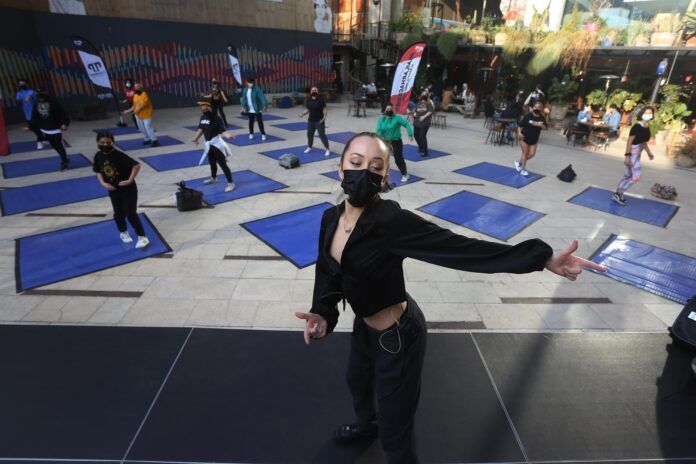RIO DE JANEIRO, BRAZIL – Cinemas dust off their seats, museums expand their catalog of activities, and actors return to the stage in most parts of Chile this week, where the pandemic is receding, and culture is trying to resurface after more than a year on the ropes due to harsh restrictions.
Since the first measures to contain Covid-19 were enacted in March 2020, movie houses and theaters in Santiago, where nearly a third of the population lives, have remained closed except for a few weeks last February, one of the longest closures in Latin America.
Read also: Check out our coverage on Chile
“Until now we had not been integrated and considered in the reactivation after the pandemic, so we are very excited and optimistic to be able to return,” said Roser Fort, director of the Centro Arte Alameda, an emblematic cinema in the capital that resumed its screenings this week.
The long-awaited return of culture, one of the sectors most affected by the restrictions in Chile along with hotels and tourism, comes hand in hand with a drastic drop in the number of Covid-19 infections that led the authorities to announce a new plan to tackle the pandemic with fewer restrictions.
WITH VACCINATION CARD
Museums, concert halls, and cinemas have had a week to adapt to the new reality that makes masks, social distancing, and compliance with strict capacity requirements mandatory.
Many establishments are also requesting the “mobility pass” to enter, a card granted by the Chilean government to those who have completed their vaccination – almost 80% of the target population – because its use allows the premises that require it to double the capacity limit.
In most of the capital’s neighborhoods, with this identification, the capacity is substantially higher than before: up to 500 people in closed spaces and 1,000 in open spaces.
Felipe Mella, director of the iconic Gabriela Mistral Cultural Center (GAM) in Santiago, explained that this ID will be mandatory in its closed venues and assured that these changes are “essential to face this complex scenario”.
“We have to take advantage of this opportunity. Until now, the debt with the world of culture was gigantic, it has been dramatic, especially for many small spaces that have had to close,” he expressed.
THE “ABANDONMENT” OF THE GOVERNMENT
In some controversial declarations, the Minister of Culture, Consuelo Valdés, affirmed in November 2020 that every peso that was destined to the world of the arts “would be left out of other programs (to face the pandemic).”
Since then, numerous artists have denounced the “absence” in the way she manages the portfolio and complains that the Government’s social aid, which in total has disbursed more than 33 billion dollars since the beginning of the health crisis, is insufficient and has arrived late.
From the Ministry, they maintain that the concrete investment to alleviate the effects of the pandemic in the cultural sector has been 60,000 million pesos (almost 80 million dollars) and confirmed that they have increased by 19% the budget of the competitive funds for 2022.
“The cultural sector, in Chile and the world, has been one of the areas most affected by the characteristics of the activity (…) We have always been open to dialogue and cooperation,” said the minister to EFE news agency.
The general director of the Observatory of Cultural Policies, Bárbara Negrón, said that in 2021 the government reduced for the third consecutive year the culture budget from 0.4% of total public spending to a historic 0.3%, which “denotes a clear disinterest” in this activity.
Nor was there any direct aid to the pockets of cultural workers, a sector with a high rate of informality, most of them being competitive funds with many bureaucratic hurdles, the expert added.
“This has been the worst year for Chilean culture in decades. The sector was already highly precarious and invisible, but the government’s abandonment has left it in total helplessness,” she lamented.


